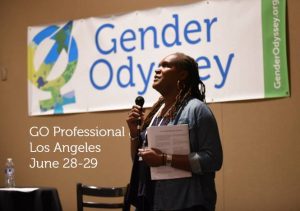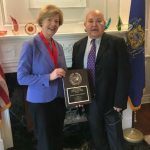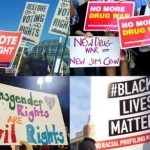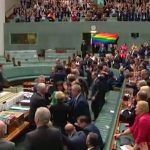 There are many transgender specific conferences every year with different focuses, such as the Black Trans Advocacy Conference in Dallas, Texas, Transgender Lives: The Intersection of Health and Law Conference in Farmington, Conn., and the Philadelphia Trans-Health Conference in Philadelphia, Pa. Although conferences often begin serving just one niche, these often grow to over more than one, such as the Southern Comfort Conference in Ft. Lauderdale, Fla.
There are many transgender specific conferences every year with different focuses, such as the Black Trans Advocacy Conference in Dallas, Texas, Transgender Lives: The Intersection of Health and Law Conference in Farmington, Conn., and the Philadelphia Trans-Health Conference in Philadelphia, Pa. Although conferences often begin serving just one niche, these often grow to over more than one, such as the Southern Comfort Conference in Ft. Lauderdale, Fla.
One conference covers more than one niche, and more than one city.
Gender Odyssey originally began in Seattle, Wash. in 2001. No other conferences focused on the needs of trans men, and Gender Odyssey looked to fill that void by catering to the needs of that subcommunity of the trans community.
A parent of a trans youth attended an early Gender Odyssey conference and talked to one of the organizers, telling him she was there to gather information that would help her child. Realizing there wasn’t anything there for that parent, the organizers in 2007 expanded their mission to include content specifically for families, creating a second Gender Odyssey conference: “the first stand-alone national conference for families of gender diverse and transgender children.”
In 2012, Gender Odyssey further expanded with a conference aimed at professionals serving the transgender community. Professionals accommodated in the scope included medical providers (i.e. doctors, nurses, electrologists, etc.), therapists and educators.
This past June 28-29, Gender Odyssey held its first, two-day stand-alone professional conference in Los Angeles. The organizers hope to expand this to include an annual Gender Odyssey Family Conference in Los Angeles as well. With the large quantity of transgender people concentrated in Southern California, the organizers see a local need that needs to be filled.
And when the event was organized, a large quantity of the presenters are living and/or practicing in Southern California.
Workshops on Wednesday, June 28 included Holistic Trans Care at Intersections, Families in Transition: What a Clinic Can Do, Best Trans-Themed Books for Kids, Puberty Delay and Cross Hormones, Non-binary Identities and Legal Issues Affecting the Trans Community. Workshops on Thursday June 29 included Sexual Behavior and Risk Factors of Trans & Queer Youth, Spaces for Trans Folks with Disabilities, Strategies to Build Affirming Schools and Supporting the Whole Family Through Transition.
Darlene Tando, LCSW, is from San Diego. She presented Consciously Parenting the Gender-expansive Child on the Wednesday and Considering Transition as an Intervention on the Thursday. I attended the second workshop, and took away from it how much gender dysphoria – especially with trans youth – is treated as a “decision” and a privilege that has to be earned as opposed to something that “is” that has medical treatment attached to it. Such as, I have a bipolar condition and high cholesterol, and denying medical intervention isn’t considered appropriate because I’m “making such a big decision” about treatment for the medical conditions. Yet parents do hesitate at letting children transition, even when they know their children are gender dysphoric, because they treat transition as “a big decision” instead of treating something that just “is” and needs intervention.
The workshop that still “haunts” me from the Los Angeles conference was presented by Johanna Olson-Kennedy, MD, Aydin Olson-Kennedy, MSW and Susan P. Landon, MA, LMFT, entitled Just a Boy/Just a Girl. It’s seductive to believe that we transgender people can function in life just like cisgender people, but the reality is we’re not cisgender. Our bodies tell us from the shapes of our genitalia, hormones and/or drugs we take, how we go to the bathroom, how we do or don’t lubricate, and/or how or if we can participate in reproduction, for example, that we’re not cisgender – we’re reminded frequently we’re not cisgender. For many trans youth, they don’t want to be transgender; their coping mechanism can be “I’m just a boy” or “I’m just a girl.” To paraphrase the workshop description, integrating transgender experience into one’s core self is an important element of a trans youth. But, this can be incredibly difficult when transgender identities aren’t celebrated within a trans youth’s social environment. If deep down you know your body isn’t cisgender, and you want to see yourself and live as “just a boy” or “just a girl,” how do you do it? As being transgender is core to my identity, there’s a reason the workshop haunts me.
I’m glad Gender Odyssey is in L.A. I hope to be back again in years to come.















